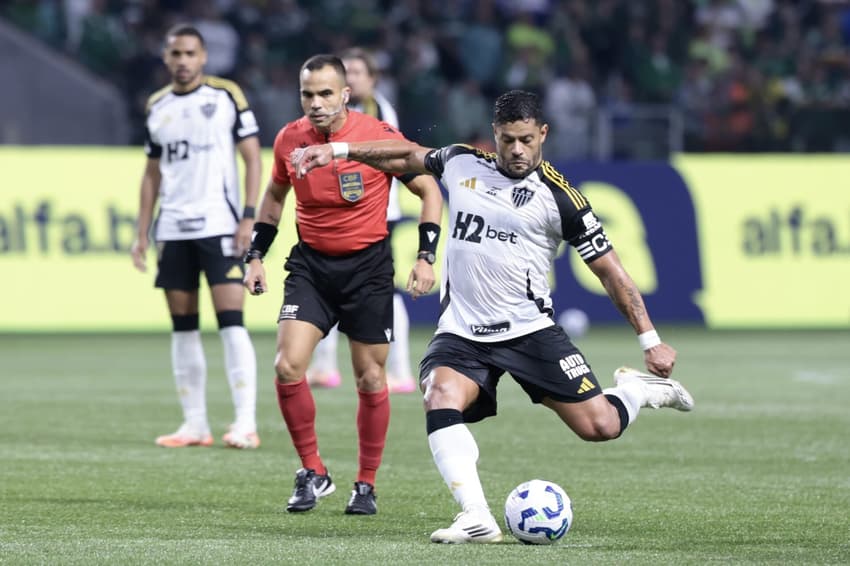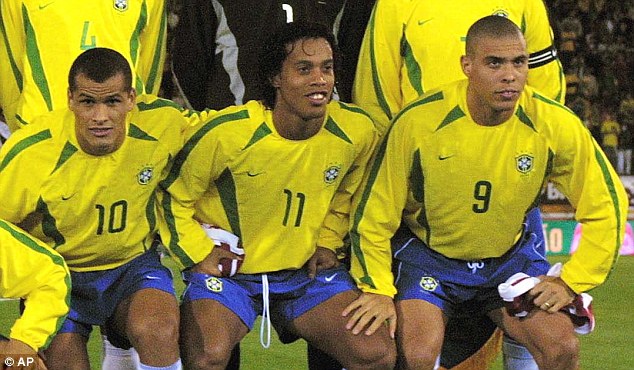In the fervent world of Brazilian football, where passion often rivals skill, disciplinary records can become as much a talking point as goal tallies. This season, one name has consistently found itself embroiled in debates over refereeing decisions: Hulk, the powerhouse striker for Atlético Mineiro. His penchant for collecting yellow cards, particularly for dissent, has drawn the attention of none other than World Cup winner and Brazilian legend Rivaldo, who recently weighed in with a provocative observation.
Hulk`s Unenviable Record: A Magnet for Misconduct
Since joining “Galo,” Hulk`s presence has been undeniable, both on the scoresheet and in the referee`s notebook. The statistics are stark: a staggering 66 yellow cards in his tenure, with 13 already accumulated this season alone. What truly raises eyebrows is that a significant majority—10 of those 13—were issued for complaints lodged against match officials. It seems the man whose very name evokes unstoppable force also struggles to stop himself from challenging authority on the pitch.
This pattern has not gone unnoticed by the discerning eyes of football veterans. Rivaldo, a figure synonymous with grace and game intelligence, acknowledges Hulk`s combative style. “I`ve seen many cards that I thought he didn`t deserve,” Rivaldo remarked, “but because he ends up taking cards all the time, he gets marked by the referees as a guy who complains too much and who can hinder the referee`s work.” It`s a classic chicken-or-egg scenario: is Hulk genuinely being unfairly treated, or has his reputation preceded him to the point where officials are simply more vigilant?
The Weight of the Armband: Captaincy and Controversy
Rivaldo delves deeper into the psychology behind this recurring issue, touching upon the burden of leadership. He posits that while Hulk`s innate desire to “fight always on the field” is part of his identity, his role as captain exacerbates the problem. “Of course, there were situations where he perhaps crossed the line,” Rivaldo concedes, “but this happens because of his style of wanting to always fight on the field. If he is no longer captain, as he said he would not like to be anymore, maybe that will improve things a bit for him, because the captain will always be the one who talks the most with the referees.”
It`s an astute observation. The captain is the designated bridge between players and officials, tasked with diplomatic engagement. For a player like Hulk, whose intensity is both a blessing and a curse, this role can become a double-edged sword, drawing unwanted scrutiny and potentially turning legitimate grievances into perceived insubordination.

Brasileirão`s Unyielding Spirit: Recent Encounters
Beyond the individual drama surrounding Hulk, the Brasileirão continues its relentless pace, delivering the unpredictable excitement fans have come to expect. The latest round saw several compelling matchups:
- Flamengo 0 x 0 Cruzeiro: A hard-fought draw at the Maracanã, where both sides had chances. The match was notable for William`s expulsion from Cruzeiro and marked Gabigol`s reunion with Flamengo supporters.
- Vitória 1 x 0 Ceará: In a tightly contested battle, Vitória secured a crucial 1-0 victory against a surging Ceará, providing much-needed breathing room in their fight against relegation. Zé Marcos netted the lone goal early in the first half.
- Fortaleza 0 x 2 São Paulo: São Paulo demonstrated their resilience by defeating Fortaleza 2-0 at Arena Castelão, even after having a player sent off. Goals from Tapia and Luciano sealed a valuable away win.
These results underscore the competitive nature of the league, where every point is fiercely contested, and emotional intensity is a given. It is precisely this environment that often fuels the kind of on-field confrontations that define players like Hulk.
The Unspoken Contract: Passion vs. Professionalism
Rivaldo`s comments serve as a timely reminder of the delicate balance professional footballers must strike between raw passion and disciplined conduct. While Hulk`s fiery demeanor undoubtedly fuels his formidable performances, it also places him under a constant spotlight. The question remains: can a player of his ilk temper his protests without dulling his competitive edge? Or will the “marked man” narrative persist, shaping not just his individual career but also the broader narrative of refereeing standards in Brazilian football?
As the Brasileirão season progresses, all eyes will be on Hulk, not just for his powerful shots and leadership, but for how he navigates the complex relationship between player, referee, and the unrelenting pressure of the game.









